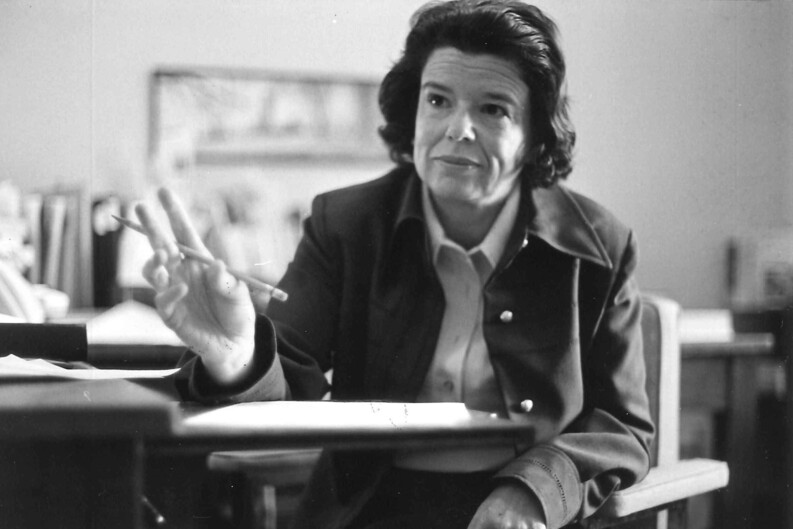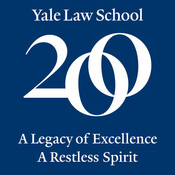Historical Profile: Ellen Ash Peters ’54


Ellen Ash Peters ’54, the Law School’s first female faculty member and the Connecticut Supreme Court’s first female appointee and Chief Justice, paved the way for countless women in the legal field both with her accomplishments and mentorship. During a Conference of Chief Justices dinner held in 1994 honoring Peters, Ruth Bader Ginsburg said of Peter’s time teaching at Yale, “She gave generations of women law students cause for hope [and] a reason to believe that they, too, could aspire and achieve.”
Peters was born in Berlin, Germany, in 1930. Her family, fearing the rule of the Nazi Party, fled the country when she was 8 years old and eventually immigrated to New York City. After graduating Phi Beta Kappa from Swarthmore College in 1951, she enrolled at Yale Law School where she graduated with honors in 1954.
Following her graduation, Peters clerked for Chief Judge Charles E. Clark in the Second Circuit of the U.S. Court of Appeals and then taught briefly at the University of California, Berkeley. In 1956, she became the first female faculty member at Yale Law School at just 26 years old.
“I think a fair number of my colleagues expected me to teach for a few years and then disappear and have babies,” Peters said during an interview with the Hartford Courant in 1978. “I’m not sure when I knew that was nonsense.”
Peters, who specialized in contracts and commercial law, was the first woman to earn tenure in 1964 and became the Southmayd Professor of Law in 1975. She taught at the Law School full-time until 1978, when former governor Ella T. Grasso appointed her as the first woman to serve on the Connecticut Supreme Court. She stayed on the Law School faculty as an adjunct professor until her appointment as the first female Chief Justice of the state Supreme Court in 1984. Of her many notable cases, she is best known for her ruling in the landmark civil rights case of Sheff v. O’Neill, which upheld equal educational opportunities for children in Connecticut.
"In the fall of 1972, I found myself in Ellen Peters' contracts class — confused by the material, overwhelmed by her brilliance, and encouraged by her warmth and (intermittent) sympathy for our countless rookie mistakes," said former dean Anthony Kronman ’75. "Professor Peters — she will always be that to me — commanded the classroom and directed our musings as a master conductor might. Toward the end of the semester, the light began to break, slowly, by degrees, until it illuminated most of the landscape through which we'd been traveling since the beginning of the term. I will never forget the experience."
He continued, "When I learned a few years later that Professor Peters had become Judge Peters and I was to step into her role teaching contracts and commercial law to students as confused as I was in 1972, my feelings were a mix of gratitude, astonishment, and tremendous anxiety at the prospect of trying to do myself what she had done so well. I immensely admired Professor Peters as a student and do so to this day."
Since her mandatory retirement from the bench in 1996, she has served as a Judge Trial Referee in Hartford’s Appellate Court and a Visiting Professor of Law at the University of Connecticut Law School. She has received numerous accolades over her impressive career, including the Yale Law School Association’s Award of Merit in 1983, and holds honorary degrees from Yale University, Swarthmore College, the University of Hartford, Georgetown University, New York Law School, Connecticut College, Bates College, Trinity College, and Wesleyan University.
Ellen Ash Peters died on April 17, 2024, at the age of 94.


